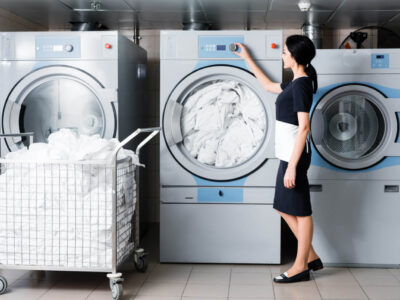
Dust collectors are essential tools in various industries, from woodworking and metalworking to pharmaceuticals and food processing. These systems help maintain a clean and safe work environment through dust suppression—capturing and filtering airborne dust and particulate matter. However, choosing the right dust collector for your needs can be daunting. Next, let’s look at some key factors to consider when selecting the ideal dust collector system.
Identify your dust characteristics
The first step in selecting a dust suppression system is understanding the type of dust or particulate matter you will be dealing with. Dust can vary significantly in particle size, density, and composition. For example, wood dust, metal shavings, and chemical powders all require different collection methods. Knowing the characteristics of your dust will help determine the appropriate system for efficient capture and filtration.
Airflow requirements
The airflow or volume of air that needs to be processed is a crucial factor in selecting a dust collector. Measure the cubic feet per minute (CFM) required to capture all the dust generated in your workspace effectively. This calculation depends on factors like the size of your facility, the number of dust-generating machines, and the type of dust generated.
Filter media and efficiency
The filter media used in a dust collector plays a critical role in capturing and retaining dust particles. Choose a filter that matches the particle size and composition of the dust you’re dealing with. High-efficiency filters are essential for maintaining a clean working environment and preventing the release of harmful particles into the air.
Collection method
Dust collectors employ various collection methods, including baghouses, cartridge collectors, cyclone separators, and wet scrubbers. Each method has its advantages and disadvantages. Baghouses, for instance, are excellent for fine dust particles, while cyclone separators are better suited for larger, heavier particles. In addition, consider the type of dust you are dealing with and the efficiency of the collection method when making your choice.
Maintenance and cleaning
Regular maintenance is crucial for the longevity and effectiveness of your dust collector. Different systems require varying levels of maintenance. Cartridge collectors, for example, are known for their ease of cleaning, while baghouses may require more frequent bag replacements. Consider your team’s capacity for maintenance and downtime when selecting a system.
Safety and compliance
Compliance with local and national air quality and workplace safety regulations is paramount. Ensure that your dust collector meets all relevant standards and regulations. Failing to do so can lead to fines, legal issues, and health hazards for your employees.
Cost considerations
Finally, it’s essential to consider your budget when selecting a dust collector system. While it may be tempting to opt for the least expensive option, balancing cost with long-term efficiency and effectiveness is crucial. Investing in a high-quality dust collector that meets your specific needs can lead to cost savings in terms of maintenance and productivity.
Choosing the ideal dust collector system for your needs requires you to consider several factors, including the dust type, collection method, safety, and cost. What’s more, you will comply with environmental regulations while maximizing productivity and cost efficiency.












